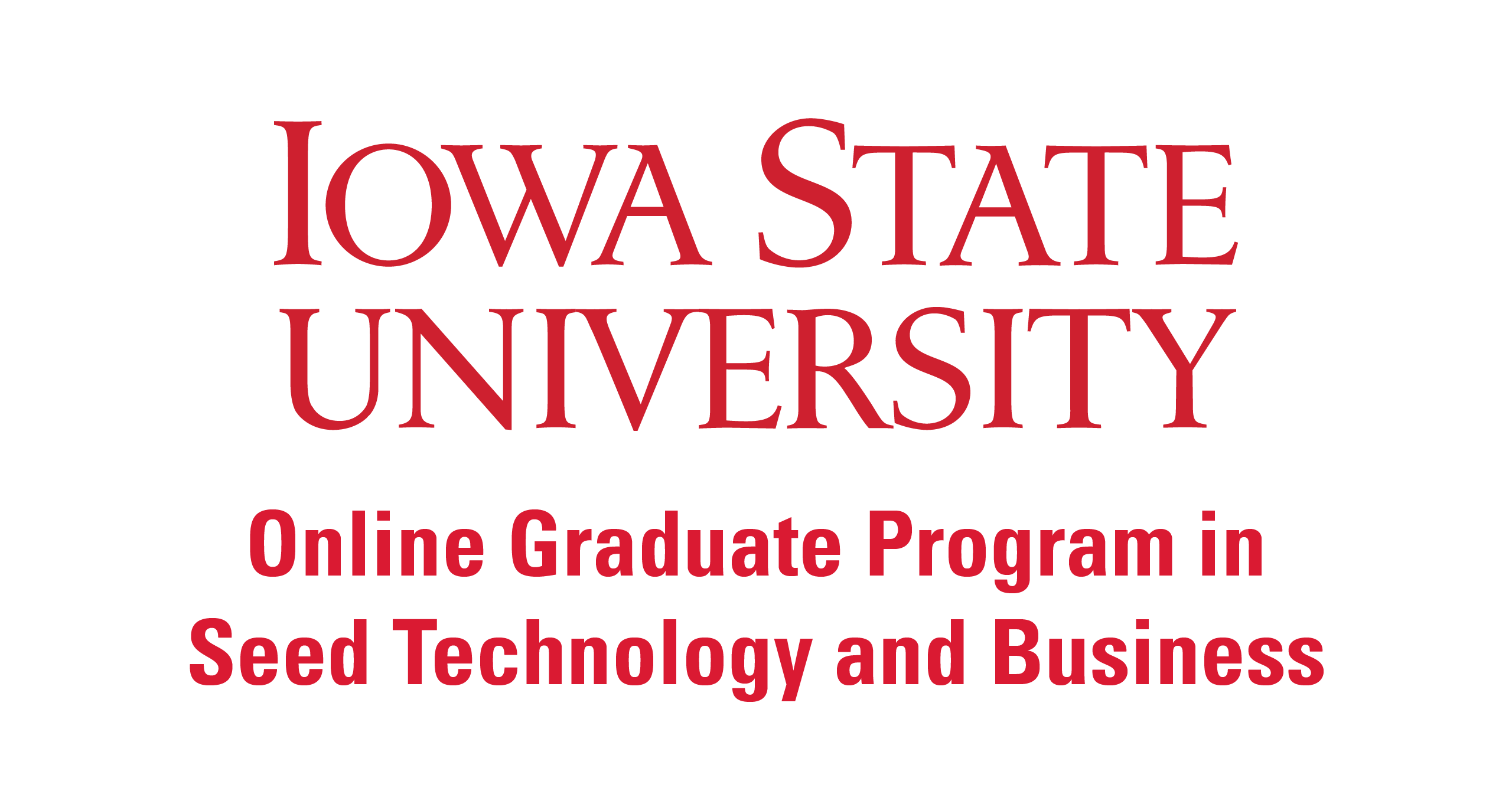Eligible Digital Badges for the Seed Health Testing Workshop:
 Seedborne Pathogen Detection Pathway
Seedborne Pathogen Detection Pathway
The Seedborne Pathogen Detection digital badge represents a series of foundational knowledge and applied laboratory experience in seed health testing methods for bacteria, fungi, and viruses, utilizing methods under the U.S. National Seed Health System (NSHS).
To earn this badge, participants must successfully complete —Detection of Bacterial Pathogens in Crop Seeds, Detection of Fungal Pathogens in Crop Seeds, and Detection of Viral Pathogens in Crop Seeds—totaling 23.5 hours of training. Learners will gain practical experience using microbiological and molecular methods, working alongside experts to conduct testing and interpret results. In addition, participants complete 2.5 hours of training in seed health testing principles and actively engage in group discussion. This badge is offered by the Seed Science Center at Iowa State University and is designed for early-career professionals in the seed health testing field. Learn More about this pathway
 Detection of Bacterial Pathogens in Crop Seeds
Detection of Bacterial Pathogens in Crop Seeds
The Detection of Bacterial Pathogens on Crop Seeds digital badge provides early-career seed health professionals with proficiency in detecting bacterial pathogens in crop seeds. Participants will gain hands-on laboratory experience in detecting Curtobacterium flaccumfaciens pv. flaccumfaciens (Cff) in bean seeds using methods approved under the U.S. National Seed Health System (NSHS).
Through 6.5 hours of workshop sessions, learners will explore principles of seed health testing, apply microbiological screening techniques, and use PCR/pathogenicity testing for confirmation. Guided by expert practitioners, participants will perform tests, interpret results, and connect detection methods to industry standards and regulatory requirements. This badge is offered by the Iowa State University Seed Science Center. Learn More about this badge
 Detection of Fungal Pathogens in Crop Seeds
Detection of Fungal Pathogens in Crop Seeds
The Detection of Fungal Pathogens on Crop Seeds digital badge provides early-career seed health professionals with proficiency in detecting fungal pathogens in crop seeds. Participants will focus specifically on the detection of Stenocarpella maydis in maize seeds using a method approved under the U.S. National Seed Health System (NSHS).
Through 3.5 hours of workshop sessions, attendees will explore the principles of seed health testing for fungal pathogens, practice microbiological methods for screening, and collaborate with experts to perform and interpret test results. This badge is offered by the Seed Science Center at Iowa State University and is intended for early-career professionals in the seed health testing field. Learn More about this badge
 Detection of Viral Pathogens in Crop Seeds
Detection of Viral Pathogens in Crop Seeds
The Detection of Viral Pathogens on Crop Seeds digital badge provides early-career seed health professionals proficiency in the principles and laboratory practices used to detect viral pathogens in crop seeds. Participants will gain specific hands-on experience with the detection of Tomato Brown Rugose Fruit Virus (ToBRFV) in tomato seeds using a method approved under the U.S. National Seed Health System (NSHS).
Through 7.5 hours of workshop sessions, attendees will learn concepts of seed health testing for viruses, including viral extraction, RNA isolation, and RT-qPCR detection methods. Working alongside experts, participants will perform diagnostic testing procedures and develop the ability to interpret test results. This badge is offered by the Seed Science Center at Iowa State University and is designed for early-career professionals in the seed health testing field. Learn More about this badge
Assessment
Participants will be assessed using a rubric of laboratory skills. To earn the digital badge, the learner must demonstrate proficiency in the required laboratory procedures and achieve at least an 80% threshold in both technical execution and interpretation of results.
Participants will be assessed through:
- Direct observation by subject matter experts during laboratory activities to ensure correct application of NSHS-approved detection methods
- Practical demonstration of testing procedures
- Verbal or written explanation of results interpretation, ensuring alignment with industry and regulatory standards
What is a Micro-Credential?
A micro-credential is a short, focused program that allows you to gain and showcase specific skills or knowledge through various learning experiences. Unlike traditional courses, micro-credentials are shorter and more narrowly focused. Upon completion, you earn a digital badge that validates your achievement—perfect for sharing with employers who are seeking candidates with in-demand skills. A Digital Badge is the visual emblem that represents the learners’ mastery that includes metadata indicating a competency, skill and knowledge has been attained that can be displayed, accessed, and verified online.
What is a Digital Badge?
At the successful completion of a micro-credential program, you receive a digital badge signifying the skills you’ve acquired. Embedded with metadata, each includes detailed information about the program, its requirements, and your accomplishments. Digital badges are portable and verifiable, meaning you can easily share them on social media platforms, add them to your resume, or include them in job applications.
Helpful resources: (external links)









 Seedborne Pathogen Detection Pathway
Seedborne Pathogen Detection Pathway Detection of Bacterial Pathogens in Crop Seeds
Detection of Bacterial Pathogens in Crop Seeds Detection of Fungal Pathogens in Crop Seeds
Detection of Fungal Pathogens in Crop Seeds Detection of Viral Pathogens in Crop Seeds
Detection of Viral Pathogens in Crop Seeds What are Continuing Education Units (CEUs)?
What are Continuing Education Units (CEUs)?
